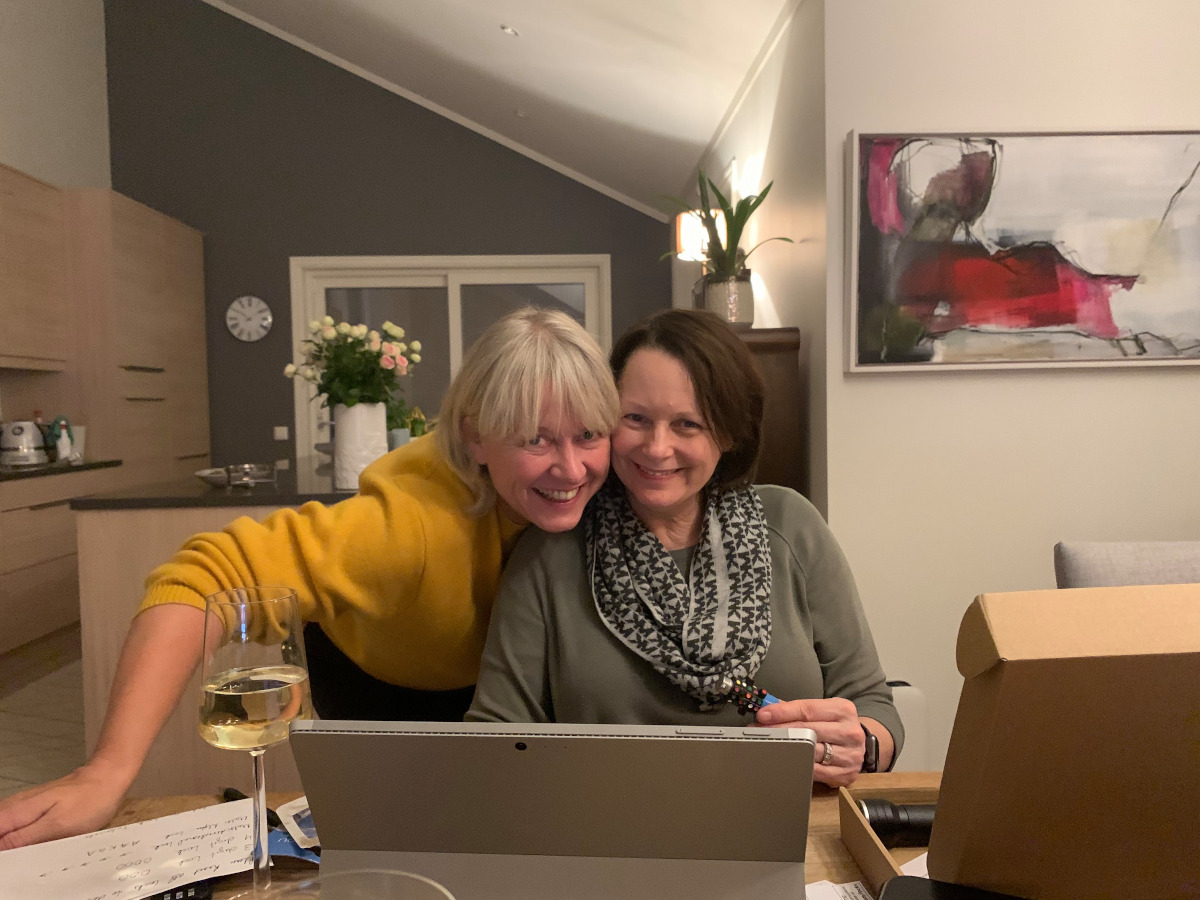
Are educators ready for online teaching?
What about learners, especially the vulnerable?
Through the Open GATE Fellowship, education researchers from the US and Norway have been studying urgent questions on teachers digital readiness, inclusion of learners, and digital best practices during the COVID-19 crisis.
Dr. Dawn Hathaway of George Mason University and Dr. Greta Gudmundsdottir of University of Oslo/Oslo Metropolitan University are comparing data on these questions from both the US and Norwegian contexts, designing research projects on using digital technologies to develop pre-service teachers’ critical thinking skills.
The Open GATE partnership is a fellowship opportunity offered to novice and experienced researchers from the United States and Norway. The grant is sponsored by the Norwegian Center of International Cooperation in Education to support research in various educational areas. The goals of the Open GATE program are to: Build research partnerships among experienced researchers, foster new ways to solve educational challenges, deepen the knowledge among stakeholders on critical forms of research, and enhance the capacity of novice educational researchers.
One of the most illustrative partnerships in this grant is between Dr. Hathaway and Dr. Gudmundsdottir. Dr. Hathaway is the Academic Program Co-Coordinator of Learning Technologies in Schools and an Associate Professor at CEHD. Dr. Gudmundsdottir is a Professor at the University of Oslo and also affiliated with Oslo Metropolitan University.
Dr. Hathaway and Dr. Gudmundsdottir were encouraged to meet by Open GATE coordinators Dr. Supriya Baily and Halla Holmarsdottir, while they were both attending the 2017 Society of Information Technology and Teacher Education conference held in Austin. Later that year, Dr. Hathaway learned about Dr. Gudmundsdottir research in developing teachers’ digital competence, which is of a shared interest. They decided to collaborate, with both applying for a fellowship through Open GATE and an illustrative partnership was born.
Committed to building a collaboration, Dr. Hathaway said, “While an Open GATE fellowship encourages and provides the opportunity to explore possibilities, I was intent on returning with an actionable research plan that aligned with my research agenda and informed my teaching and design practice.”
In Norway, Dr. Hathaway discovered US and European education researchers don't necessarily “speak the same language!” This was evident in a conversation with other researchers in Norway. While talking shop over wine and pizza one evening, Dr. Hathaway was struggling for her dinner companions to understand her research and coursework on digital citizenship. She wondered, “Is it the wine or my inability to convey my research?”. Later on she said, “I believe we had nearly finished dinner when Louise [Louise Mifsud of the Dicte project] asked, “What is digital citizenship? We don’t have the term.” They talked about possible equivalent terms, cyber-ethics or digital responsibility and discussed how their conversation identified new search terms and a whole new line of literature.
Describing the importance of unified terminologies in the field of digital citizenship, Dr. Hathaway said: “If I want this particular strand of my research to be understood by a global audience, I need to find ways to resolve the terminology issue in my own work. It is a messy problem that cannot be done without international partners.”
Dr. Hathaway and Dr. Gudmundsdottir are analyzing data from a slice of time in the early months of COVID to better understand teachers’ readiness online (TRIO), where they compare data from the US and Norway on readiness of educators for online teaching, opportunities and challenges educators face related to online teaching, and the inclusion of vulnerable learners in online practices during the COVID-19 crisis.
Post-COVID, they plan to study pre-service teachers’ critical thinking skills using selected digital technologies.
“The TRIO project has the potential to seek answers to many more questions related to teachers’ readiness for teaching online,” Dr. Hathaway said, signaling out “areas of future research that emerged and reported in the first publication” as of high interest to her.
Looking ahead, Dr. Hathaway says she “looks forward to the possibility of 3rd year pre-service teachers from Oslo Met completing a semester at Mason SOED” which is another off-shoot of the successful Open GATE partnership. At George Mason University, the Norwegian pre-service teachers will learn about designing for literacy and problem solving, courses that are part of the LTS-Designing Digital Learning in Schools specialization.
